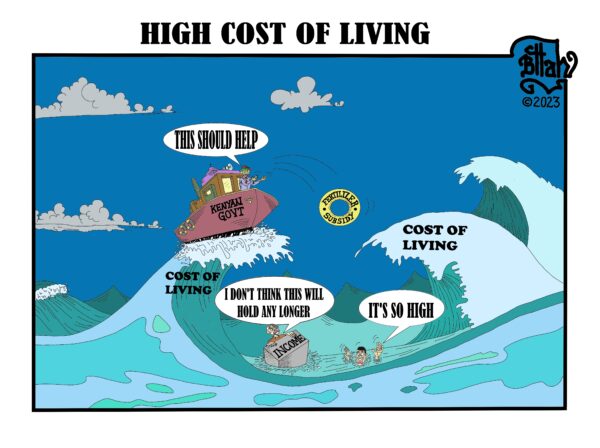
Written by
Jedidah Mwongeli -Economist cum Political analyst
It started as a rumour. We didn’t see it coming. Some people were heard saying huu ni ugonjwa wa wazungu, huku Afrika hautuwezi kuugua (that sickness is for the whites, Africans are too immune for that). Little did we know that the rumor would persist. “When the government said that one of the Covid-19 safety measures was social distancing, I knew that this would take a toll on my business. I mean, with my kind of job, I am hardly ever a quarter a meter from someone,” remarked one of the panelist who owns a barber shop, at the Wanjiku’s Tax Pain symposium hosted by The Martha Karua Foundation.
Covid-19 came, ravaged societies, economies and lifestyles, took some of the most vital aspects of our lives, how we meet, how we do business and how we interact. For businesses, the last three years have been like the first three days of recovering from a dental surgery, financially. Just when our economy is about to receive a clean bill of health, our country is getting hit by another pandemic. This time it’s neither a rumor, nor a whisper in the corridors of power. The Finance Bill 2023 is here with us, with words such as ‘punitive, oppressive and scandalous’ already dressing the barely tabled Bill. For many, the Bill wreaks of betrayal, backstabbing, political favors, and over ambition, all at the cost of the Kenyan people. The comical part is that the architects of the Bill are the very same people we trusted to lead our country to tranquil. As Awinja, a Kenyan comedian puts it, the William Ruto government is presenting to us a finance PILL.
Kenyans should brace themselves for more pain at the pump, as the price of fuel could go up by more than 10 shillings should the Finance Bill 2023 get approval from parliament. The Finance Bill seeks to increase the VAT from 8% to 16%. This will have a ripple effect on the cost of production and consumer goods. When asked how this will affect his business, a boda guy seated at the panel said that; “itabidi sasa profits zangu zirudi chini kwa sababu customer hatakubali nimbebe na Ksh.200 mahali nilikua nambeba na Ksh.150. Hapo awali, nilikua naweka mafuta ya mia mbilili saa hii naweka mauta ya mia saba kwa siku.” (This means I will not make profit because a customer will not agree to pay Ksh. 200 for the same distance that he previously paid Ksh. 150. Earlier on I would fuel my motorbike at a cost of Ksh. 200, however, I currently pay Ksh. 700 for fuel). This is a cry from a person whom our president based his manifesto on by promising to make their life better yet he is doing the exact opposite.
Some of the major concerns in the Finance Bill include; firstly, the turnover tax which is to be increased from 1% to 3%. This will add to the expenses of Micro, Small and Medium Enterprises (MSMEs) by increasing their operations costs thus reducing their profits. Second, is the 3% contribution to finance affordable housing. So many questions remain unanswered with regards to this; the type of houses to be constructed, the location, the rent to be paid, does the government consider whether some people are in the process of building their own home or having mortgages? How exactly will this create employment? Who are the investors and finally, who will occupy these houses? The country needs answers!
To wind it up, the discussion immensely highlighted that the cost of living is very high and should the Finance Bill go through, then the corresponding effects should be expected. This includes; domestic and gender based violence (GBV), due to economic stress, mental health issues, increase in suicidal cases and less educated children, because mothers who are from marginalized areas and who are not financially privileged, will have to choose between food and education, a choice no parent ever wishes to make.
Here is the thing, regardless of what Kenyans think about the Finance Bill 2023, it is increasingly difficult for mama mboga to prioritize sales over profit for the sake of raising revenue for her government. Wanjiku does not want a government provided house, if she cannot put food on the table for her family. Omondi is not sure if his motorbike business will sustain his growing family with VAT increase on fuel, a key ingredient in his line of work. In short, Mr. President, when it comes to priorities and our needs, you do understand us, but from the wrong side up. Kenyans cannot trust the government, at least not enough to place its ambitions ahead of their families’ desires and livelihoods, at least not when most, if not all promises, have been broken already.


